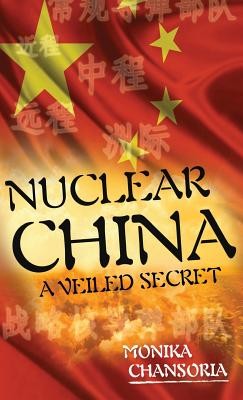
- We will send in 10–14 business days.
- Author: Monika Chansoria
- Publisher: K W Publishers Pvt Ltd
- Year: 2014
- Pages: 478
- ISBN-10: 9383649208
- ISBN-13: 9789383649204
- Format: 14 x 21.6 x 3 cm, kieti viršeliai
- Language: English
- SAVE -10% with code: EXTRA
Reviews
Description
China has undergone a protracted stint in the nuclear domain from the time when Mao Zedong derided the bomb as a "paper tiger" in 1946, to the development of modern nuclear weapons and missiles, making it only obligatory to chronicle the policy changes within China that steered the leadership towards grasping that nuclear weapons will fundamentally redefine China's quest for security. The Chinese leadership's nationalistic ideology and concepts of force and diplomacy shaped its perceptions of the enduring dangers that confronted China. Initially, Beijing's political corridors dismissed the dangers of a nuclear war while reaffirming the principles of a "people's war," however, later, witnessed Mao recasting the struggle into one with a military-technical emphasis that relied on assured nuclear retaliation to ensure effective deterrence. With China seeing a massive amount of political guanxi being expended, it comprehended that nuclear weapons shall play a fundamental role in its long-term aspirations to augment its position and role in global politics. Given that nuclear arsenals are increasingly viewed as a critical assurance of military supremacy and security, this book distils the evolving trends in China's nuclear doctrine and strategy, and chronicles the journey of a nuclear China, assessing all pertaining facets, including a detailed analysis of the delivery vectors that focus on a high degree of mobility of assets, particularly the missiles and warheads, separately as well as complete weapon systems. During the 1960s, Beijing proceeded with its nuclear weapons programme mindful that it was vulnerable to decapitation, and this book's narrative underscores that China seeks to improve the survivability and mobility of its existing strategic nuclear forces through a robust nuclear modernisation campaign, including nuclear weapon miniaturisation technology. This, subsequently, leads onto a pressing debate on whether China would aspire to modify, qualitatively and quantitatively, its nuclear posture without necessarily deposing its brand of nuclear minimalism, which has been the core of its nuclear strategy, at least for public consumption.
EXTRA 10 % discount with code: EXTRA
The promotion ends in 21d.10:27:49
The discount code is valid when purchasing from 10 €. Discounts do not stack.
- Author: Monika Chansoria
- Publisher: K W Publishers Pvt Ltd
- Year: 2014
- Pages: 478
- ISBN-10: 9383649208
- ISBN-13: 9789383649204
- Format: 14 x 21.6 x 3 cm, kieti viršeliai
- Language: English English
China has undergone a protracted stint in the nuclear domain from the time when Mao Zedong derided the bomb as a "paper tiger" in 1946, to the development of modern nuclear weapons and missiles, making it only obligatory to chronicle the policy changes within China that steered the leadership towards grasping that nuclear weapons will fundamentally redefine China's quest for security. The Chinese leadership's nationalistic ideology and concepts of force and diplomacy shaped its perceptions of the enduring dangers that confronted China. Initially, Beijing's political corridors dismissed the dangers of a nuclear war while reaffirming the principles of a "people's war," however, later, witnessed Mao recasting the struggle into one with a military-technical emphasis that relied on assured nuclear retaliation to ensure effective deterrence. With China seeing a massive amount of political guanxi being expended, it comprehended that nuclear weapons shall play a fundamental role in its long-term aspirations to augment its position and role in global politics. Given that nuclear arsenals are increasingly viewed as a critical assurance of military supremacy and security, this book distils the evolving trends in China's nuclear doctrine and strategy, and chronicles the journey of a nuclear China, assessing all pertaining facets, including a detailed analysis of the delivery vectors that focus on a high degree of mobility of assets, particularly the missiles and warheads, separately as well as complete weapon systems. During the 1960s, Beijing proceeded with its nuclear weapons programme mindful that it was vulnerable to decapitation, and this book's narrative underscores that China seeks to improve the survivability and mobility of its existing strategic nuclear forces through a robust nuclear modernisation campaign, including nuclear weapon miniaturisation technology. This, subsequently, leads onto a pressing debate on whether China would aspire to modify, qualitatively and quantitatively, its nuclear posture without necessarily deposing its brand of nuclear minimalism, which has been the core of its nuclear strategy, at least for public consumption.


Reviews